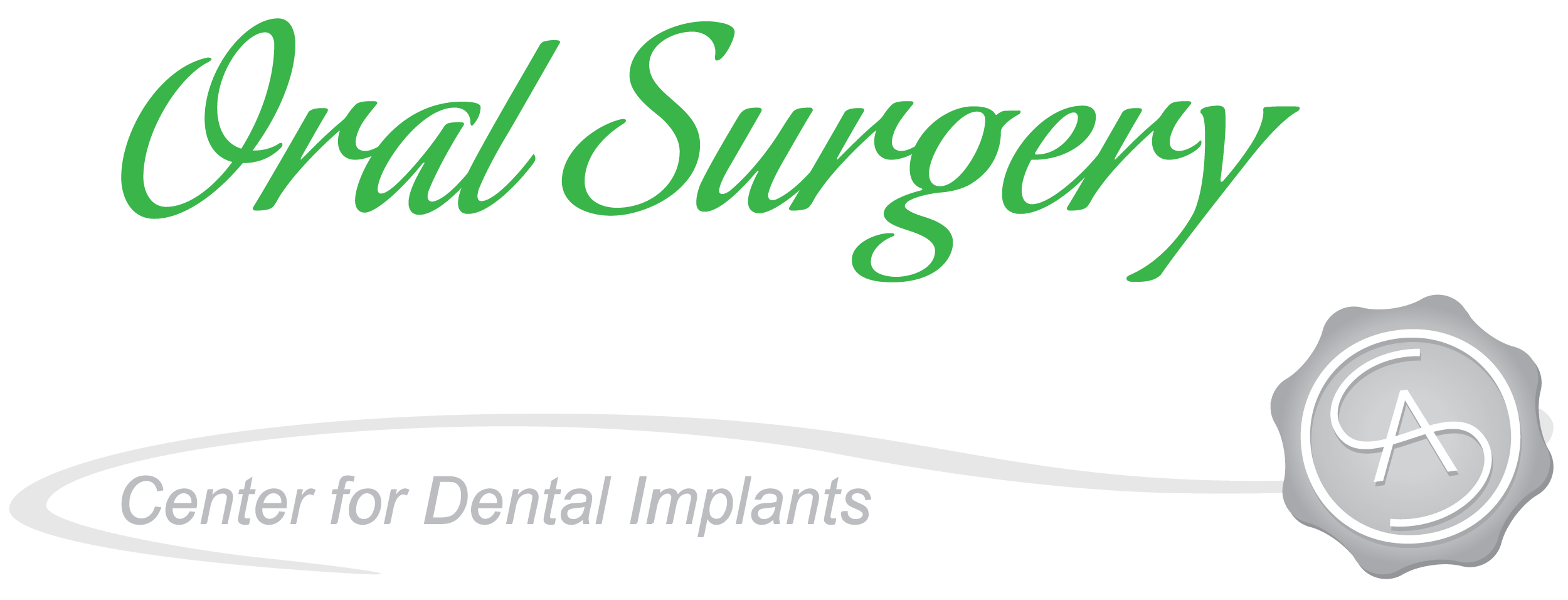Post-Operative Instructions
Nausea and Vomiting:
Post operative nausea and vomiting is very rare, but if not treated immediately, it can lead to serious complications. Please notify our office if vomiting should occur as soon as possible.
Bleeding:
Normal "oozing" following an extraction or other oral surgical procedures can occur for up to 48 hours after surgery. If you are taking blood thinners, medications such as aspirin or Plavix, or herbals like ginseng, garlic or ginkgo, there may be prolonged bleeding.
The surgical staff will instruct you to bite on gauze for 30 to 45 minutes following your procedure. The gauze should be replaced only if there is evidence of continuous bleeding. While using a flashlight the surgical site should be wiped clean with a dampened fresh gauze. If blood wells up from the area, place a wet gauze pack as you were instructed by the nurse and leave it in place for 60 minutes. Notify our office if bleeding continues after this pack is removed. A small amount of blood when mixed with saliva can give the impression of bleeding. A red gauze pack after removal does not indicate active bleeding.
Swelling and Bruising:
Sitting in a semi upright chair following surgery can help to make you more comfortable following surgery. Swelling is a normal part of surgery and the healing process. Swelling usually peaks 48 to 72 hours following surgery. If swelling persists after 3 days and becomes painful, looks red, and is hard to the touch please notify our office. These signs could be the beginning of a postoperative infection. Bruising is possible in all patients following surgical procedures, and may spread into the neck and chest area. This is most often seen in older patients and is not a medical concern. Bruising may take weeks to fully disappear and may change color from purple to yellow during that time. Application of ice packs during the first 24 hours after surgery may help to decrease swelling and postoperative pain. Ice packs can be used 20 minutes on, 20 minutes off.
Discomfort:
Pain medication is usually prescribed following surgery. As the numbness wears off your pain will start to increase. We recommend that you take the pain medication as prescribed following surgery so that it can start working before the numbness goes away. There may be some procedures when two types of pain medication are prescribed. One is a long acting anti-inflammatory pain pill and the other a short acting narcotic. The two pills can be taken a few minutes apart. It is very important to stay on schedule with the pain pills and not play catch up. It may take one to two doses of medication to achieve pain relief. If after two to three days there is no improvement in your discomfort level, please call the office during normal business hours. It is very important that you have food in your stomach before taking any medication to avoid nausea and vomiting. Your doctor may recommend a milkshake and may advise drinking it through a straw.
Dry Sockets:
A "dry socket" may occur after extraction of one or more teeth. This condition can become very painful if not treated early. Pain in the surgical site that increases or does not get better over time are usually signs of loss of the blood clot which is a "dry socket". The pain can sometimes be mistaken for an ear ache when lower teeth are removed. Bad breath and a foul taste may also be noticed. The dry socket process will usually occur on the second or third day following surgery. If you are experiencing increased pain and some of the symptoms mentioned please call our office during regular business hours.
Diet:
It may be difficult to eat due to soreness and swelling following oral surgical procedures and some facial procedures. A cool soft diet is recommended while numbness is present in the lower lip. Milk shakes, yogurt and ice cream are excellent because they not only provide nutrition but coat the stomach to help eliminate nausea when taking pain medication and antibiotics. Once the numbness has left the lip and chin you may advance the diet to soft non-chew foods such as pastas, scrambled eggs. Hard foods such as peanuts, chips and especially popcorn should be avoided during the healing period for one to two weeks because they may become lodged in the surgical site and cause infection.
Hygiene:
Good oral hygiene is very important for successful healing after surgery. A soft tooth brush can be used gently where stitches have been placed. Avoid rinsing your mouth until the day after surgery. Mouth washes with an alcohol base should be diluted with warm water. Starting the day after surgery a salt water rinse may be used following surgery consisting of 1/2 tsp of salt with 8 oz. of warm tap water. Gently swish and spit to remove food debris and old blood clots from the mouth. These rinses can be started the day after surgery. Avoid vigorous swishing and spitting. Your doctor may prescribe an antibiotic mouth rinse depending on the surgical procedure. You should follow his directions for proper use. If you have had a procedure on the outside of your face, follow the specific instructions your surgeon gave you after your procedure.

